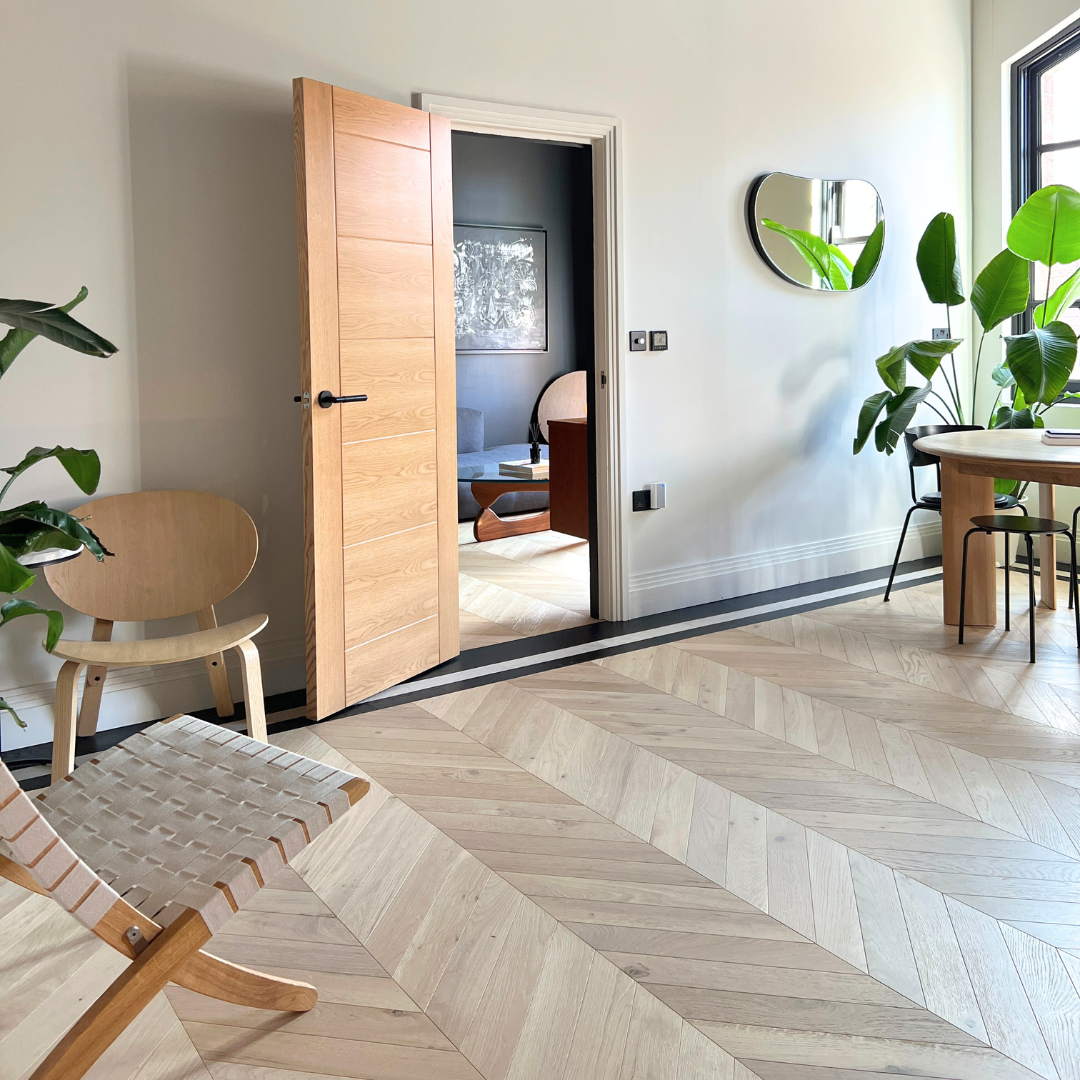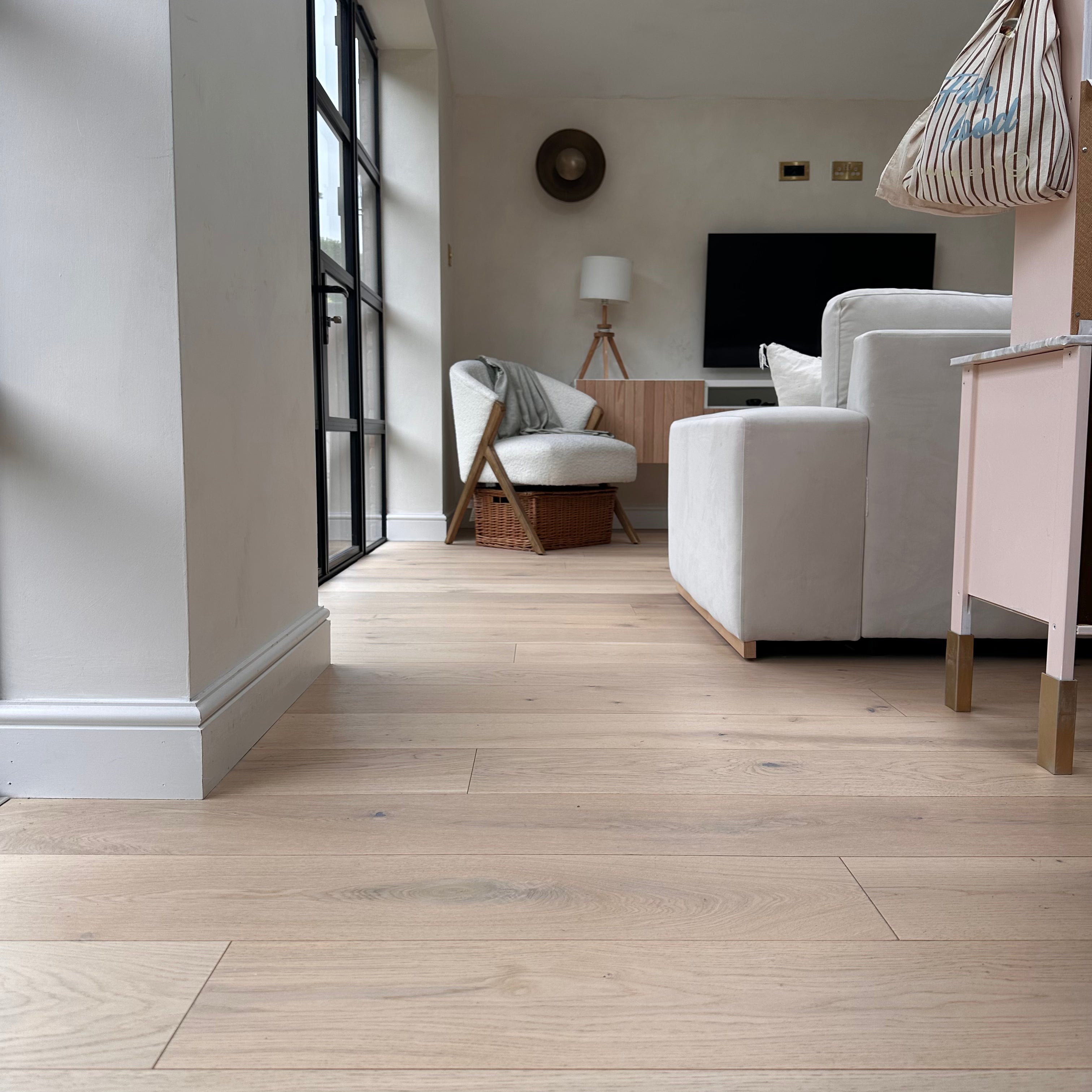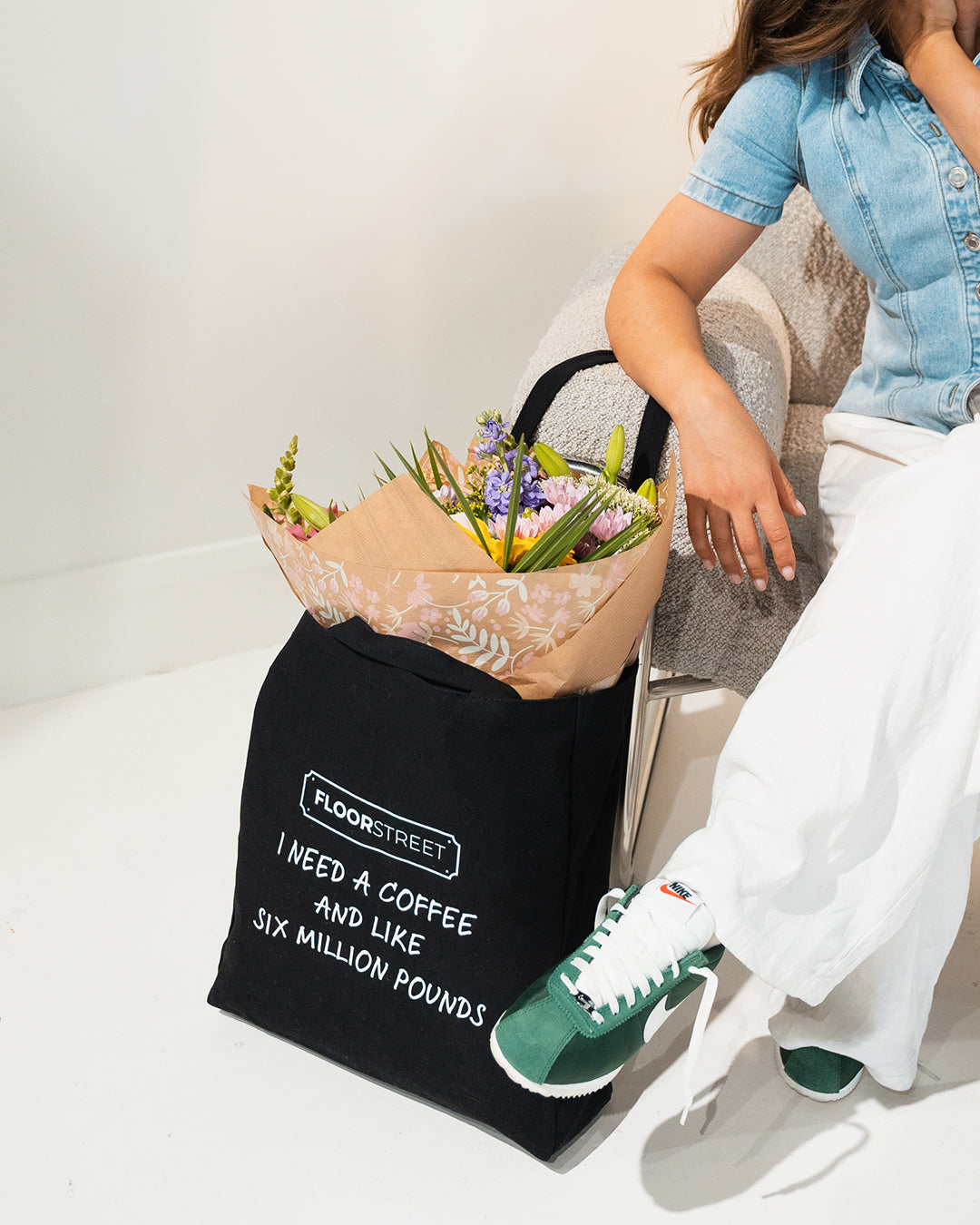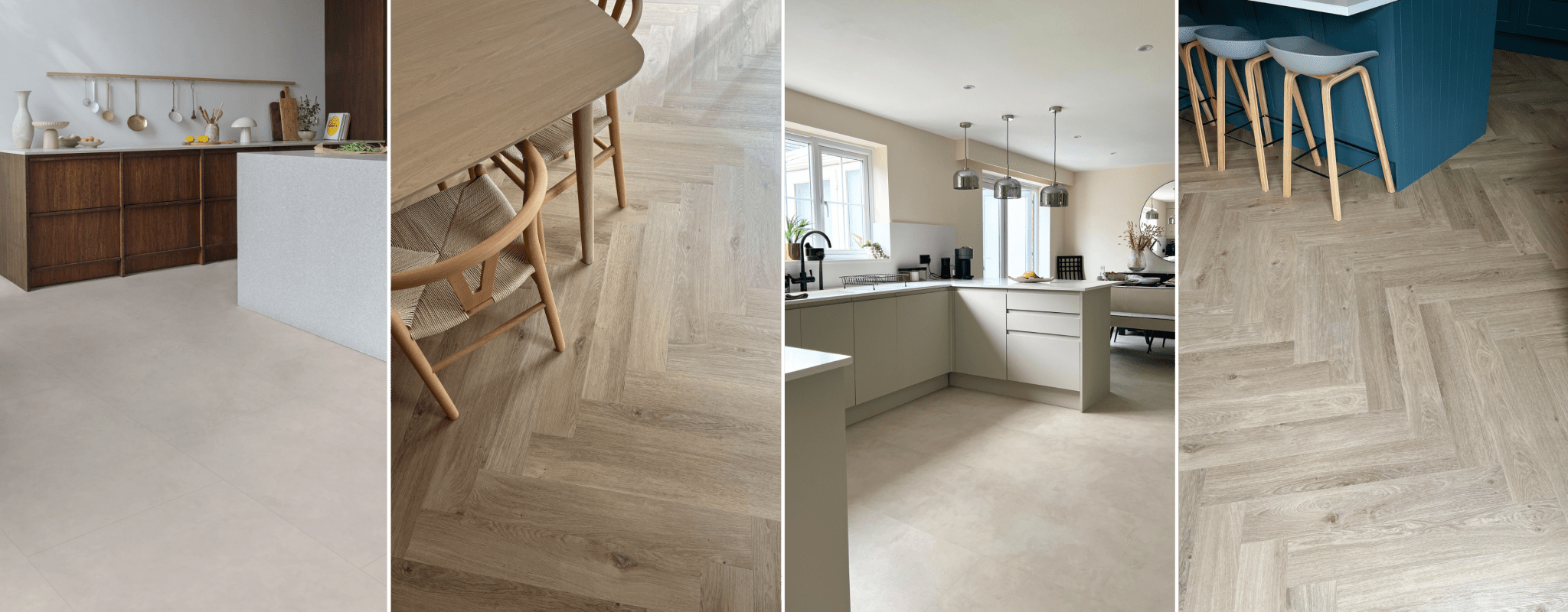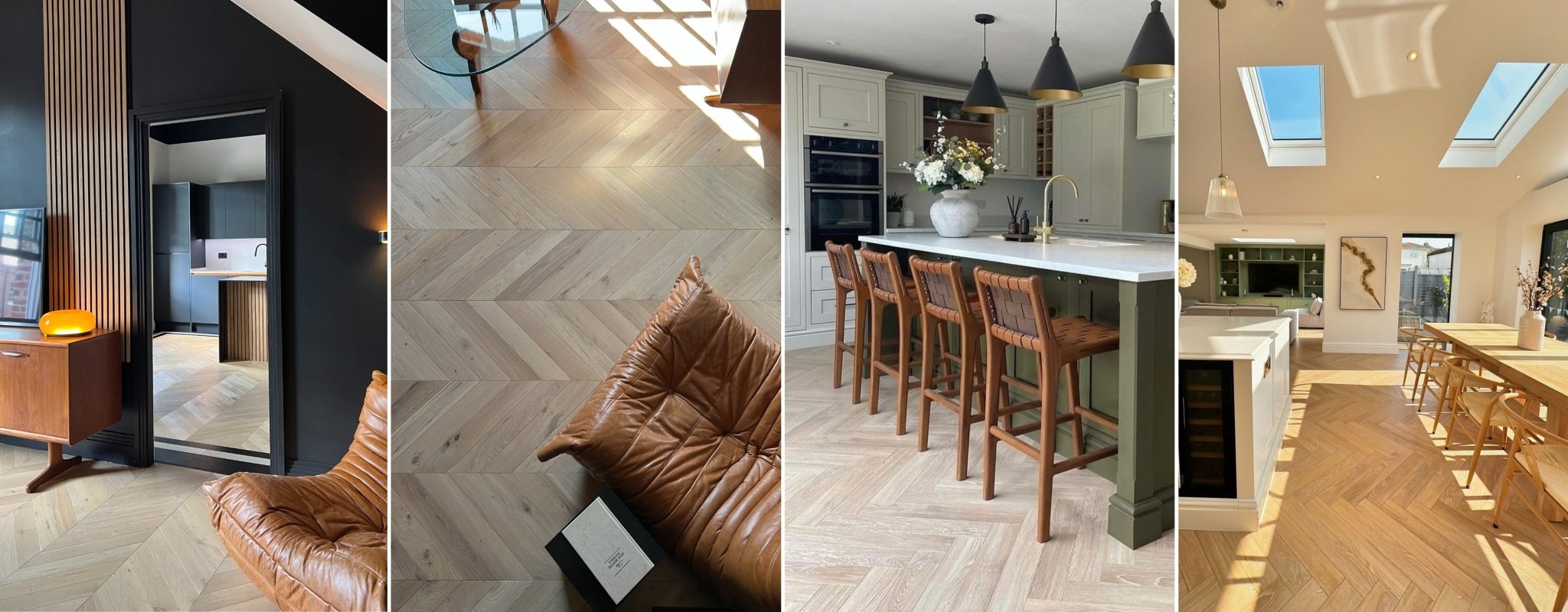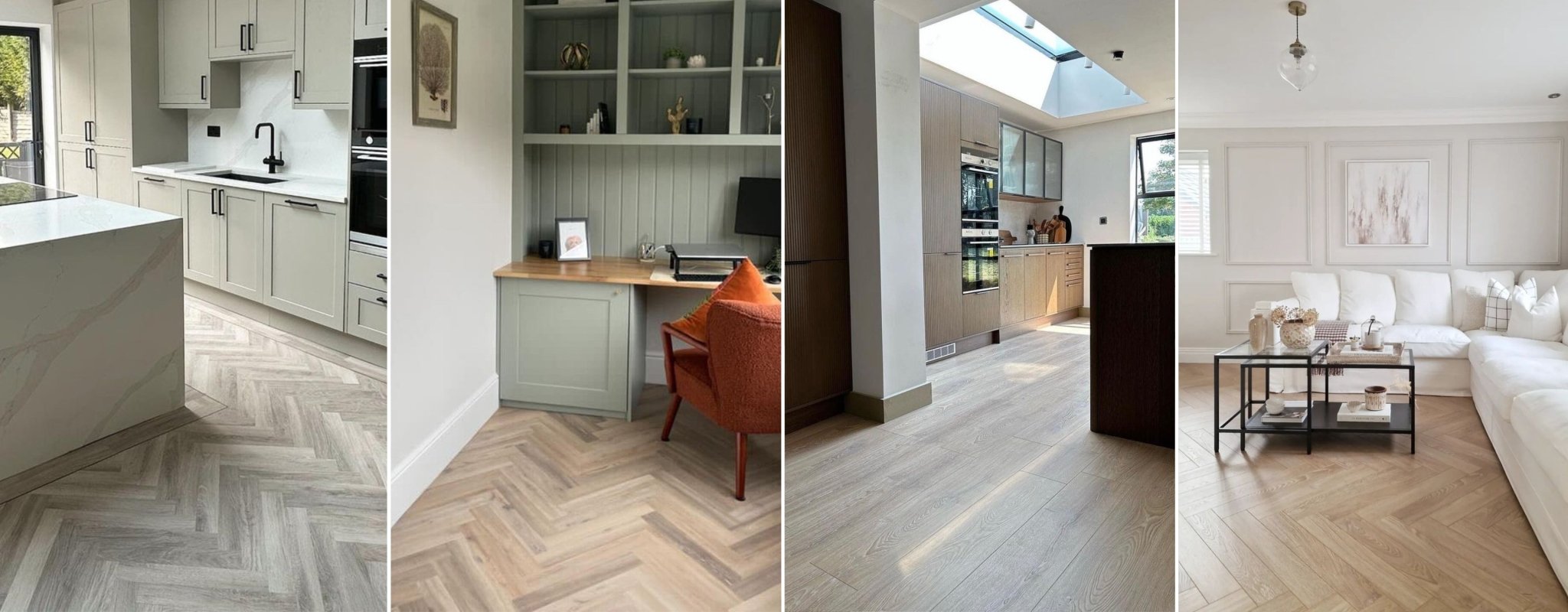
LVT or Laminate Flooring: which is the better choice?
LVT vs Laminate
Deciding between vinyl and laminate flooring can be challenging since both are excellent options. Each can convincingly replicate the look of various surfaces, allowing you to enjoy the aesthetics of solid wood or marble without the high cost.
Both laminate and Luxury Vinyl Tiles (LVT) offer numerous practical benefits, making them ideal for busy households. But how do they compare? Drawing from our extensive experience, we've put these two flooring types head-to-head to help you decide which is best for your needs.
What are LVT and Laminate Flooring Made Of?
LVT flooring is primarily made of PVC, while laminate flooring is composed of HDF (high-density fibreboard).
Both types typically consist of four layers:
- Backing Layer: The foundation of the flooring, making up about 90% of its thickness, providing structure and durability.
- Design Layer: Features a photo-realistic print to mimic the appearance of wood or stone.
- Clear Layer: A protective barrier against significant damage like rips or tears.
- Protective Wear Layer: Shields the surface from scratches and scuffs, often made with an aluminum oxide solution.
Sustainability of LVT and Laminate Flooring
Vinyl flooring, made from PVC (a type of plastic), is less eco-friendly compared to laminate flooring. Laminate can be more sustainable if the HDF is sourced from responsibly managed forests, as we ensure with our wood flooring products.
Ease of Installation
Both LVT and laminate flooring are easy to install. Laminate typically uses a 'click system' where planks slot together, allowing for a floating floor or glue-down installation. Vinyl tiles can also lock together, be loose-laid, or glued down, making both options accessible even for DIY beginners.
Waterproofing
Luxury Vinyl Tiles are fully waterproof, suitable for bathrooms and kitchens. Laminate flooring is splash-resistant, suitable for kitchens but not ideal for bathrooms. However, we offer a waterproof and water-resistant laminate range for those specific needs.
Durability of LVT vs. Laminate
Luxury Vinyl Tiles are highly durable, lasting up to 20 years, and are entirely water-resistant, making them perfect for busy family homes. They resist scratches and scuffs effectively.
Laminate flooring typically has a lifespan of up to 15 years, with a warranty ranging from 5 to 10 years. It is resilient and scratch-resistant but benefits from protective measures like felt pads or rugs to avoid damage. Additionally, laminate is one of the most hygienic and easy-to-clean flooring options, requiring just a daily sweep and weekly mop.
Compatibility with Underfloor Heating
Both LVT and laminate flooring are suitable for use with underfloor heating.

